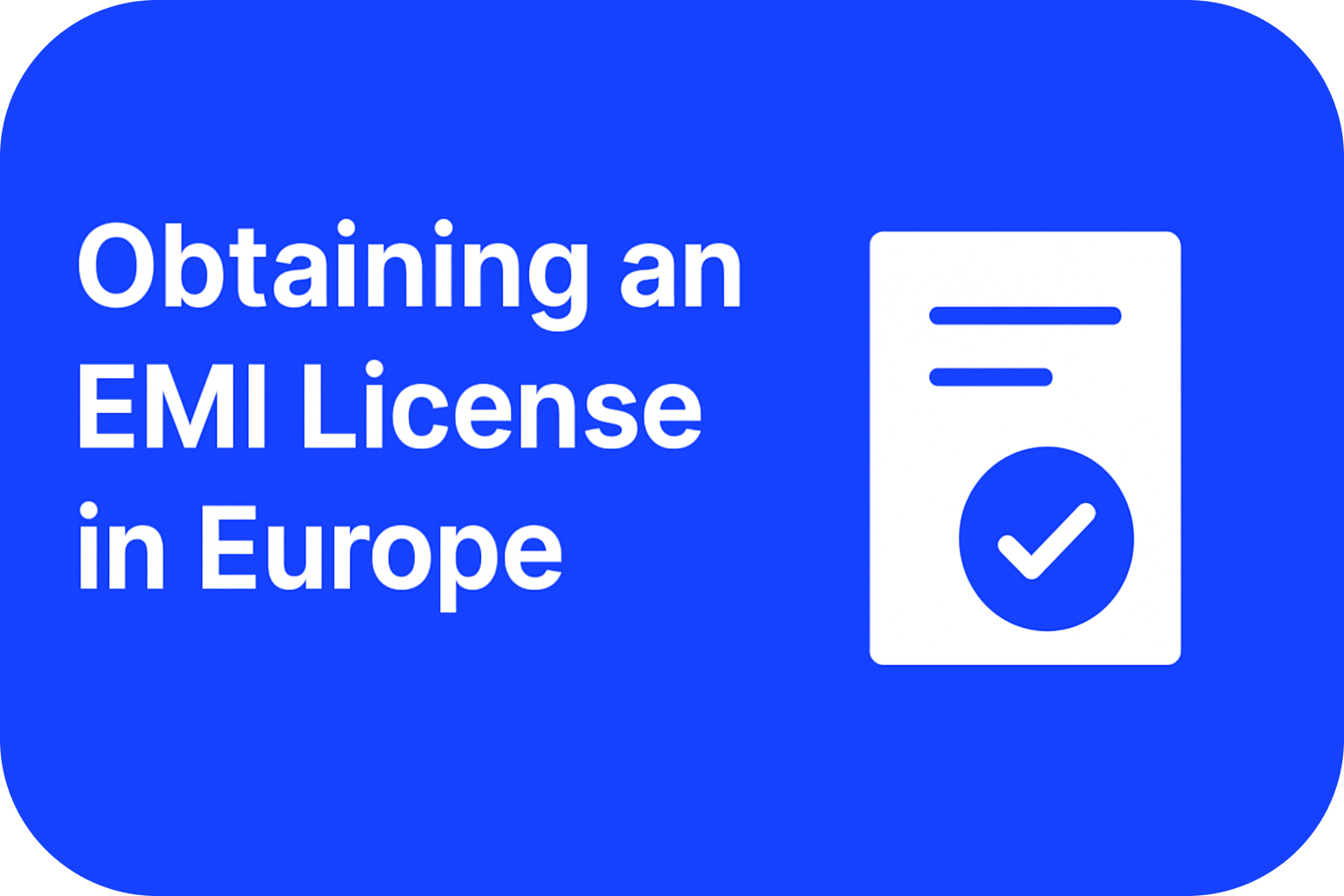Introduction
Electronic Money Institutions (EMIs) are among the most important regulatory structures for fintech and payment providers in Europe. An EMI license grants the ability to issue electronic money, provide payment services, and operate across the European Economic Area (EEA). For startups, crypto exchanges, gambling operators, and payment businesses, acquiring such a license is a strategic step towards scaling in Europe.
This guide explains what an EMI license is, why it matters, the requirements to obtain one, the application process, potential challenges, and practical advice for founders and compliance officers. Where relevant, we also highlight how BMP Global supports companies in securing EMI authorization in Latvia and beyond.
What Is an EMI License?
An Electronic Money Institution (EMI) license authorizes a company to issue electronic money and provide related financial services. Unlike banks, EMIs cannot take deposits or issue loans. Instead, they enable companies to open e-money accounts, issue prepaid cards, facilitate SEPA and SWIFT payments, and integrate digital wallets into fintech solutions.
Compared to other licenses, EMIs offer broader powers than Payment Service Providers (PSPs), who only handle payments, but remain narrower than banks, which can provide loans and accept deposits. Popular jurisdictions for EMI licenses include Lithuania, Latvia, Ireland, and the UK, each offering distinct regulatory benefits.
Benefits of an EMI License
Holding an EMI license brings credibility and flexibility. Companies can expand their operations by offering e-wallets, prepaid cards, and cross-border payments across the EEA. The license provides passporting rights, meaning once authorized in one EU member state, firms can operate throughout the entire European market.
For investors, partners, and clients, the license signals a high level of compliance and trustworthiness. Fintech and crypto platforms also see it as a bridge between traditional finance and digital assets, allowing them to serve as fiat on- and off-ramps while meeting EU compliance standards such as MiCA.
Key Requirements for EMI Authorization
Regulators expect EMI applicants to demonstrate financial stability, robust governance, and effective compliance systems. A minimum share capital of €350,000 is required. Applicants must also present a multi-year business plan outlining their revenue model, customer base, and risk controls.
Staffing is another essential requirement. At least two experienced directors are necessary, along with a dedicated Compliance Officer and AML Officer. A full Anti-Money Laundering (AML) and Counter-Terrorist Financing (CTF) framework must be in place, supported by IT systems for monitoring transactions, safeguarding customer data, and ensuring operational resilience.
First list (requirements):
- Minimum share capital: €350,000+.
- Business plan with detailed financial projections.
- At least two qualified directors and compliance staff.
- AML/CTF policies and monitoring systems.
- Strong IT infrastructure and data protection.
The Licensing Process Step by Step
The journey to authorization begins with selecting a jurisdiction. Lithuania is known for efficiency and accessibility for startups, Latvia offers balanced oversight, while Ireland and the UK are preferred for global operators seeking strong reputations.
BMP BMP Global provides end-to-end assistance in Latvia, working with the Financial and Capital Market Commission (FKTK) to prepare documentation, liaise with regulators, and guide applicants through the process.
Once the jurisdiction is chosen, the company must prepare extensive documentation: articles of incorporation, business plans, AML/CTF policies, and IT security frameworks. The application is submitted to the relevant regulator, such as the Bank of Lithuania, FKTK in Latvia, the FCA in the UK, or the Central Bank of Ireland.
The review stage often involves several rounds of clarification with regulators. Timelines vary, but the process generally takes 6 to 12 months. If successful, the company receives authorization and can immediately begin offering EMI services across the EEA through passporting rights.
Comparative Overview of Jurisdictions
Challenges and Risks
Obtaining an EMI license is resource-intensive. Compliance costs are significant, covering staff, AML tools, and legal support. Regulators require continuous reporting and audits, making compliance an ongoing commitment rather than a one-time hurdle.
Delays are common. Incomplete documentation or insufficient governance can extend timelines to 18 months or more. Beyond regulation, companies face competitive pressure, particularly in Lithuania, where numerous fintech players already hold licenses. Smaller firms may find it challenging to compete with well-funded incumbents.
Practical Tips for Founders and Compliance Officers
Success requires careful planning and investment. Assembling a strong team early is crucial, with experienced compliance and AML professionals guiding the process. Investing in RegTech solutions can streamline KYC, transaction monitoring, and risk management.
Founders should budget for at least 12–18 months before operations can begin. Transparency with regulators throughout the process fosters trust and reduces delays. Finally, scalable IT systems are essential to support long-term growth and compliance obligations.
Second list (tips):
- Hire experienced compliance and AML officers early.
- Invest in RegTech for efficiency and scalability.
- Budget realistically for a 12–18 month process.
- Be transparent with regulators.
- Build IT infrastructure with growth in mind.
BMP Global helps founders and compliance officers navigate these steps, ensuring applications meet regulator expectations and avoid costly delays.
Conclusion
An EMI license is a powerful regulatory tool for fintechs, crypto platforms, and payment startups seeking to operate in Europe. While the process is complex and resource-heavy, the benefits—market credibility, operational flexibility, and access to the entire EEA—make it an invaluable asset for scaling businesses.
By prioritizing compliance, governance, and operational resilience, founders can not only obtain the license but also establish sustainable financial institutions. For those considering Latvia, BMP Global offers comprehensive support in preparing, submitting, and managing the entire licensing process.














